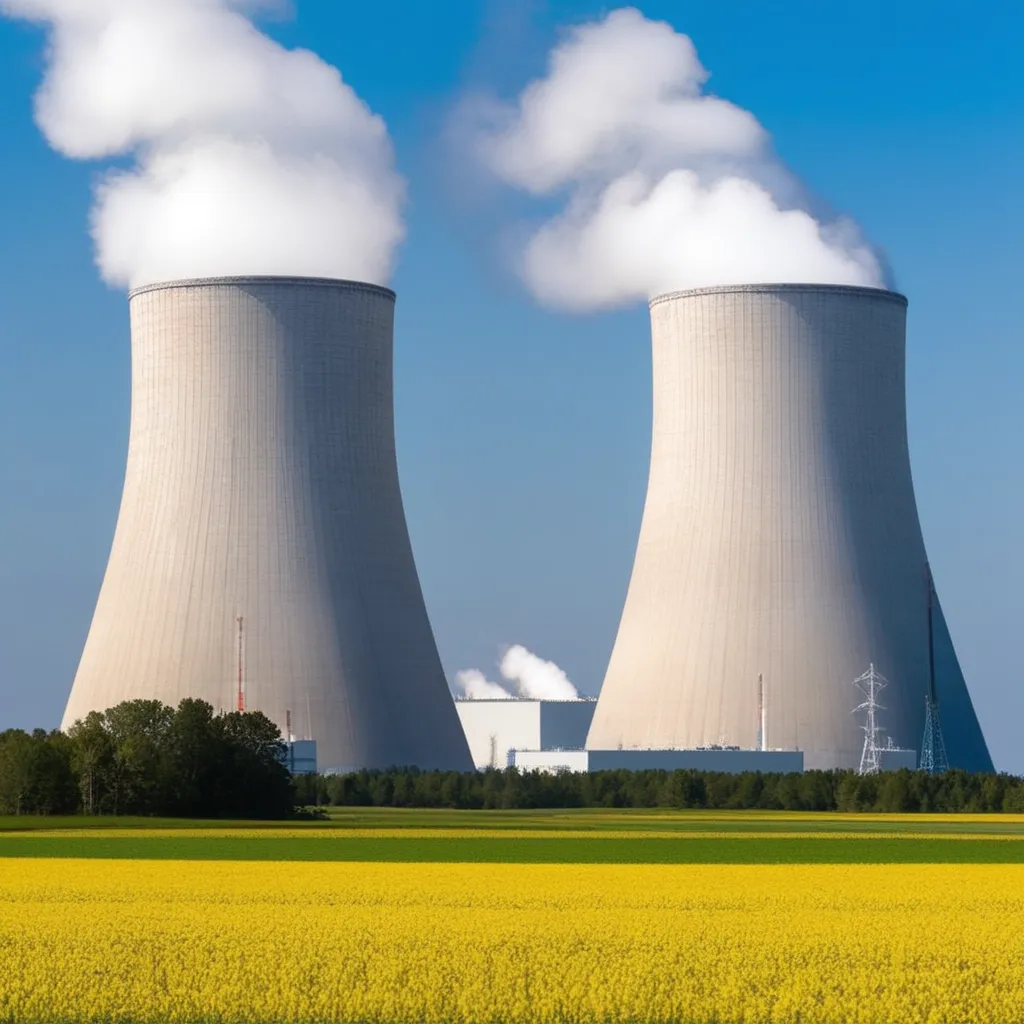The Future of Nuclear Energy: Safe or Risky?
Nuclear energy has long been a topic of debate, often polarizing opinions between those who see it as a clean, efficient power source and those who fear its potential risks. As we look to the future of energy production, the role of nuclear energy is a critical consideration. In this article, we'll explore the current state of nuclear energy, its potential for the future, and some personal insights that shed light on this complex issue.

The Promise of Nuclear Energy
1. Clean Energy Solution
One of the key advantages of nuclear energy is its low carbon footprint. Unlike fossil fuels, nuclear power plants do not emit greenhouse gases during electricity generation, making them an attractive option for combating climate change.
Personal Insight: Growing up near a nuclear power plant, I witnessed the importance of emissions-free energy production in reducing local air pollution and contributing to cleaner air quality.
2. High Energy Output
Nuclear reactors have the capability to produce an immense amount of electricity consistently. This high energy output makes them a reliable source of baseload power, helping to stabilize electrical grids.
Personal Insight: During a trip to France, I marveled at the country's extensive use of nuclear energy, which provided electricity to millions of homes while minimizing reliance on fossil fuels.
The Risks and Concerns
1. Nuclear Accidents
While nuclear power plants are designed with stringent safety measures, accidents can and do occur. Events like the Chernobyl disaster in 1986 and the Fukushima Daiichi incident in 2011 serve as sobering reminders of the catastrophic potential of nuclear accidents.
Personal Insight: Visiting the Chernobyl Exclusion Zone, I was struck by the eerie silence that had settled over a once-thriving city. It underscored the gravity of nuclear accidents and their long-lasting consequences.
2. Nuclear Waste Disposal
One of the most significant challenges of nuclear energy is the disposal of radioactive waste. The safe storage and management of nuclear waste materials are essential to prevent environmental contamination and health risks.
Personal Insight: Participating in discussions about a proposed nuclear waste storage facility in my community highlighted the concerns and uncertainties surrounding long-term waste management.
The Role of Advanced Reactors
1. Advanced Nuclear Technologies
Advancements in nuclear technology offer potential solutions to some of the challenges associated with traditional nuclear reactors. New designs, such as small modular reactors (SMRs) and molten salt reactors, aim to enhance safety and reduce nuclear waste.
Personal Insight: Attending a presentation on SMRs left me hopeful about the prospect of safer and more versatile nuclear energy systems.
2. Nuclear Fusion
Nuclear fusion, often dubbed the "holy grail" of clean energy, holds immense promise. Unlike fission, which splits atoms, fusion combines them, releasing vast amounts of energy with minimal radioactive waste.
Personal Insight: I had the opportunity to visit a fusion research facility and was captivated by the pursuit of harnessing the same process that powers the sun to generate clean and virtually limitless energy.
Striking a Balance
As we consider the future of nuclear energy, it's clear that it presents both opportunities and challenges. The path forward involves finding a balance between reaping the benefits of clean, high-output energy and mitigating the risks associated with nuclear power.
In this pursuit, transparency, robust safety protocols, and public engagement are crucial. Personal experiences and insights underscore the importance of actively participating in discussions about the role of nuclear energy in our energy mix.
In conclusion, the future of nuclear energy is not a simple binary choice of safe or risky but rather a complex landscape of trade-offs and advancements. It has the potential to play a significant role in addressing our growing energy needs while reducing greenhouse gas emissions. However, the inherent risks and concerns, as well as the management of nuclear waste, cannot be ignored.
In moving forward, it is imperative that we continue to prioritize safety, explore innovative nuclear technologies, and engage in open dialogues about the future of nuclear energy. By doing so, we can work towards a future where nuclear energy contributes to a cleaner and more sustainable world while minimizing its associated risks.

No comments:
Post a Comment